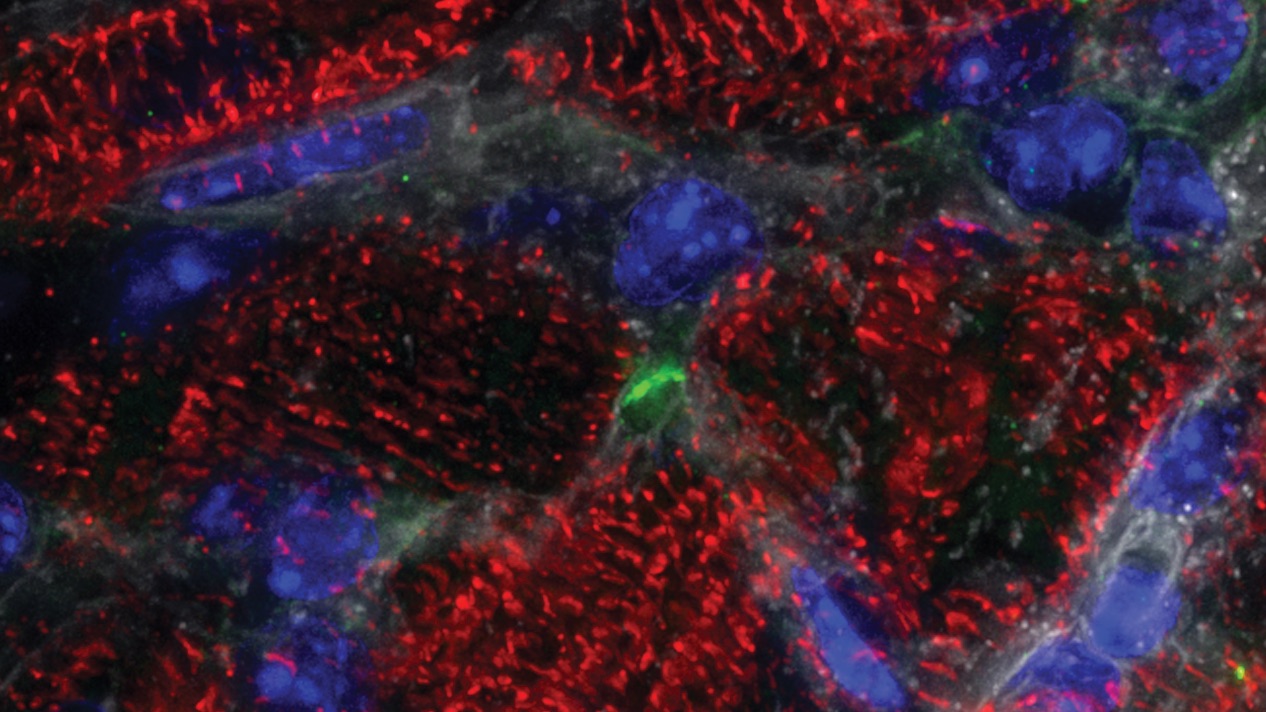“We are on the cusp of a major clinical breakthrough that could lead to a treatment to reverse heart failure and effectively cure the number one cause of death in America”
–James Martin, MD, PhD
Dr. Jim Martin leads important regenerative medicine research that is helping us understand how signaling pathways are related to heart development and tissue regeneration. The ultimate goal of his work is to develop ways to treat congenital diseases and also to regenerate hearts damaged by conditions such as heart attacks, heart failure, and atrial fibrillation.
The team discovered that the heart has the capacity to heal, challenging the long-held scientific belief that the heart cannot regenerate itself after injury. Their work shows that damage can be reversed by simply turning off a specific inhibitory signaling pathway that is important for heart growth and renewal.
Using this innovative approach to reversing heart failure, the team’s initial studies in mice have yielded promising results, giving hope to the 6.5 million Americans living with heart failure, which is the leading cause of death from cardiovascular disease.
In his early studies, Dr. Martin observed increased activity in a specific signaling pathway, called the Hippo pathway, in patients with heart failure. The Hippo pathway acts as a built-in “stop signal” that slows or prevents the proliferation of heart muscle cells (cardiomyocytes) as a way to control the growth rate and size of the heart. After making this discovery, Dr. Martin’s team set out to investigate what would happen if they turned that inhibitory pathway off completely.
In their latest study, with funding support from the National Institutes of Health, they compared hearts with Hippo pathway turned on and turned off after a heart attack.
The results were remarkable and were accepted for publication in Nature, one of the most prestigious scientific journals in the world.
When Dr. Martin turned off the Hippo pathway, he noted new heart cells, recovery of heart pumping function, less heart tissue scarring, improved blood flow to the heart, and the formation of new small blood vessels. In addition, despite Hippo being turned off, these hearts appeared to stop growing once the heart reached an appropriate size. Because of the groundbreaking results of this study, we are one step closer to finding new options for heart regeneration and renewal.
Today, Dr. Martin and his team continue to study the molecular interactions of the Hippo pathway and how best to control it.
Dr. Martin’s findings could lead to potential treatments for other critical health conditions that have no cure, such as Duchenne muscular dystrophy, a progressive disease that weakens the muscles and reduces their flexibility over time. Dr. Martin hopes these findings can be modified to help treat and improve the outcomes of children with this disease.
Director Spotlight
James Martin, MD, PhD, is an internationally recognized developmental and regenerative biologist who has made fundamental contributions to our understanding of heart development, disease, and regeneration. He has authored more than 135 peer-reviewed papers published in top-tier journals such as Nature, Science, Cell, Developmental Cell, PLOS Genetics, Development, and PNAS (Proceedings of the National Academy of Sciences).





